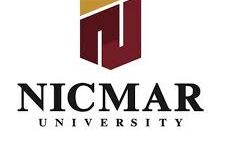-
Education costs in India’s private institutions now rival those of international universities, prompting students from Tier 3 and Tier 4 cities to consider studying abroad as a financially viable alternative.
-
Prodigy Finance’s no-cosigner, no-collateral loan model empowers students from economically diverse backgrounds by offering access to global education based on future earning potential.
-
Students from smaller towns are prioritising return on investment (ROI), comparing tuition costs, global exposure, and career prospects before choosing an international degree over local options.
London, August 2025: quiet revolution is underway in the Indian education landscape. Students from Tier 3 and Tier 4 towns are increasingly opting for postgraduate programs at top global universities, not just for prestige, but for practical reasons rooted in cost and career outcomes.
Driven by rising tuition fees in India’s Tier 1 and Tier 2 cities, families are reevaluating where their education investments truly yield the best returns. Private MBA programs in India now range between ₹18–25 lakh, often with limited global exposure. In comparison, many postgraduate programs in the UK, Germany, or France fall nearly under the same price bracket, while offering international credentials, work visa options, and stronger long-term returns.
“Studying abroad is no longer seen as out of reach or an extravagant dream,” said Sonal Kapoor, Global Chief Business Officer at Prodigy Finance. “For students in places like Bhubaneswar, Jalandhar, and Guwahati, it has become a strategic choice. They’re asking: If the cost is the same, why not invest in a global opportunity with better exposure and earning potential?”
This shift in mindset is reflected in application trends. There’s a sharp increase in loan applications from Tier 3 and Tier 4 cities, particularly for courses in data science, health sciences, business analytics, and engineering.
Prodigy Finance, a global student loan provider offering no-collateral, no-cosigner education loans, has played a pivotal role in enabling this access. Unlike traditional lenders, Prodigy Finance assesses applicants based on their future earning potential, rather than their current income or assets, making it possible for students from semi-urban and rural areas to study at world-class institutions.
This transformation is not just about affordability, it’s about value. More families are comparing the return on investment (ROI) of education at home versus abroad. For many, international degrees offer a more comprehensive package: a global network, English-language instruction, and the chance to work abroad after graduation.
Countries like the UK and Germany have helped fuel this interest by offering favourable post-study work rights, allowing students to recoup their investment and establish global careers.
“We’re seeing a new kind of ambition from students in smaller towns,” added Kapoor. “They’re digitally savvy, globally aware, and determined to make smart decisions for their future. At Prodigy Finance, we’re proud to support their journey.”
Prodigy Finance expects this momentum to continue, reshaping the global classroom with students who are determined, prepared, and ready to lead on the world stage.
 Newspatrolling.com News cum Content Syndication Portal Online
Newspatrolling.com News cum Content Syndication Portal Online







